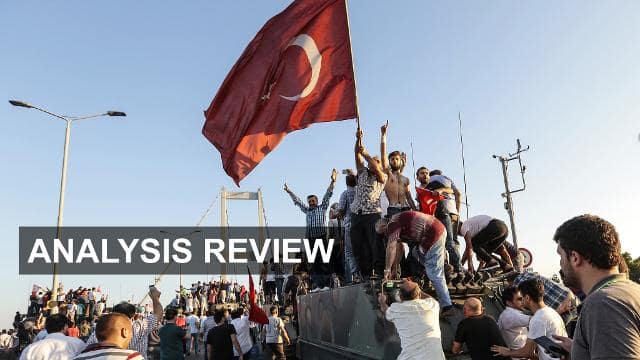Turkish riot police have raided the offices of 51 businesses and detained dozens of executives the government accuses of aiding an exiled cleric blamed by PresidentRecep Tayyip Erdogan for a failed coup.
The raids were part of a sweepinggovernment crackdown in which 17,800 people, including journalists, academics, military personnel and bureaucrats rounded up since last month’s failed putsch are still being detained. They are accused of allying with Fethullah Gulen, a self-exiled imam who lives in the US and is designated as the leader of a terrorist organisation by Mr Erdogan.
Fatih Aktas, chairman of Akfa Holding, a privately held multinational company with interests across construction, healthcare and technology, was among 50 executives detained on Tuesday.
Mr Erdogan’s decision to target the corporate sector risks unsettling businesspeople and investors at a time when his government is trying to reassure markets and rating agencies. The continuing purge also threatens to overshadow efforts by the president’s aides to present Turkey as a stable and safe environment after the putsch was swiftly put down.
The businesses raided are suspected of providing funding for Mr Gulen’s networks, according to an Istanbul judicial official who declined to be named.
Officials at most of the companies could not be reached, but one executive at Akfa who left the country a few weeks ago called the charges a “politically motivated vendetta”.
Earlier, the purges had claimed the jobs of senior executives at Turkish Airlines, the country’s most visible global brand, including its chief financial officer.
Standard & Poor’s, the rating agency, downgraded Turkey days after the coup attempt to BB, two notches below investment grade, while Moody’s, which has warned it could cut its credit rating, said it was reviewing the situation before deciding.
The lira has strengthened to about 2.93 to the dollar after it fell to 3.09 immediately after the coup attempt. The stock market also made gains after Moody’s delayed its decision on the credit rating last week, allowing Turkish companies to benefit, albeit briefly, from a rally in emerging markets stocks.
“What investors need to see is swift and accountable decisions, instead of a lingering overhang on business,” said a senior executive at a large publicly traded firm in Istanbul. “What we are seeing instead is this long-running hunt, which makes it difficult to decide who to keep my business relationships with and who to sideline.”
He declined to be identified because others who have criticised Mr Erdogan’s purge have been accused of treason.
The president considers the government crackdown as a two-pronged attack on Mr Gulen’s support networks — cutting off its funding while purging its members from positions of influence.

But he has also taken steps to stimulate the country’s consumption-driven economy that have alarmed investors, especially a demand last week that Turkish banks drop interest rates on home mortgages.
“There’s a disagreement between me and bankers on rates,” Mr Erdogan said last week. “Our banking sector is strong but, if they try to turn this strength into an opportunity at a time like this, they’ll find us against them. I would consider it as treason if the banks don’t open the way for investors.”
Within days, nearly every bank in Turkey had dropped rates to an average of about 11.5 per cent from about 14 per cent. The president had targeted 9 per cent.
At the same time the government has loosened restrictions on consumer lending, including longer repayment periods, eased credit card repayments and making it simpler to purchase imported goods such as mobile phones.
The moves threaten one of Turkey’s key economic indicators, the current account deficit, which has only recently narrowed to below 5 per cent of gross domestic product.
“It has been made clear to the ministers in charge of investment and economic operations that GDP growth should remain above 4 per cent,” said a person close to Mr Erdogan. “All government support will be given, but excuses will not be accepted.”




